100% Practical, Personalized, Classroom Training and Assured Job Book Free Demo Now
- Classroom Training
App Development
Digital Marketing
Other
- English Speaking Course
- Diploma Courses
- Computer Courses
- Mechanical
- Electrical
- Online Bidding
Programming Courses
Professional COurses
- Our Branches
- Our Services
- Student Zone
- Blogs
- More
Design Excellence Unleashed: Graphic Designing Course in Patiala!
Unleash your creativity with our expert-led Graphic Designing Course In Patiala. Start learning now for a vibrant artistic future. Master the intricacies of graphic design and enhance your career prospects today! Dive into the world of visual storytelling with our Graphic Designing Training In Patiala, designed to empower you with the skills and knowledge necessary for success in the dynamic field of graphic designing. Enroll today and open doors to a world of opportunities in the ever-evolving and visually captivating realm of graphic design.
- 4.9 out of 5 based on 16430 votes
- 4.9/5 (3471)
- 4.9/5 (431)
Course Duration
2-6Hrs.
Live Project
2-4 Projects
Certification Pass
Guranteed
Training Format
Live Online/Self-Paced/Classroom
Play Video about graphic designing training in chandigarh
Speciality
6000+
Professionals Trained
21+
Batches every month
20+
Countries & Counting
100+
Corporate Served
Why should you learn Graphic Designing Training In Patiala?
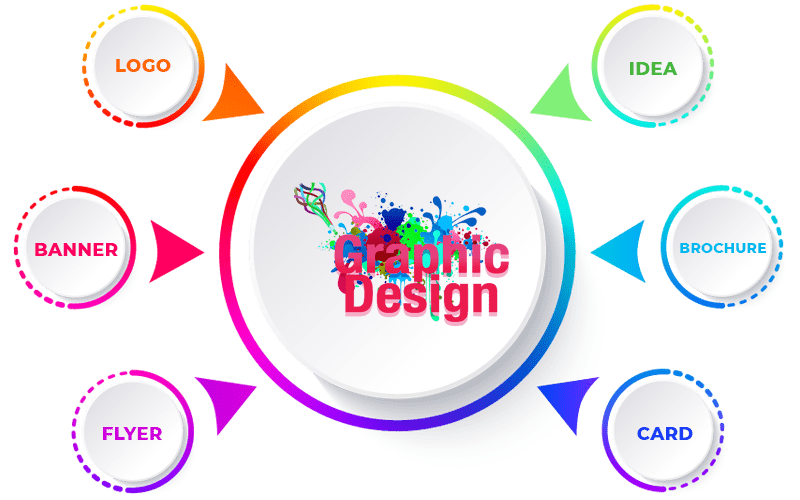
Graphic designing is a dynamic and versatile field that involves the creation of visual content to communicate messages, convey information, or evoke specific emotions. Graphic designers use a combination of artistic skills and technological tools to produce designs for a wide range of mediums, including print, digital, and social media.
Key aspects of graphic designing include:
Visual Communication: Graphic designers are visual communicators. They use images, typography, color, and layout to convey a message effectively. Whether it's a logo, poster, website, or social media graphic, the goal is to communicate information in a visually appealing and understandable way.
Typography: Choosing the right fonts and arranging text in a visually pleasing manner is crucial in graphic design. Typography not only conveys the written message but also adds an aesthetic element to the overall design.
Color Theory: Understanding the psychology of colors and how they interact is fundamental in graphic design. Different colors evoke different emotions and can influence how a design is perceived. Designers need to select and combine colors thoughtfully to achieve the desired impact.
Layout and Composition: The arrangement of elements within a design is essential for creating a harmonious and balanced visual experience. A well-designed layout guides the viewer's eye through the content in a logical and engaging way.
Digital Tools: Graphic designers utilize a variety of software tools to create their designs. Adobe Creative Suite, including Photoshop, Illustrator, and InDesign, is widely used for tasks ranging from photo editing and illustration to page layout.
Brand Identity: Graphic designers play a crucial role in shaping a brand's visual identity. This includes creating logos, business cards, letterheads, and other materials that reflect the brand's personality and values.
Web Design: With the increasing prevalence of online platforms, graphic designers often work on web design projects. This involves creating visually appealing and user-friendly interfaces for websites and applications.
Print Design: Graphic design has deep roots in traditional print media. Designers work on projects like brochures, magazines, posters, and packaging, ensuring that the printed material effectively communicates its message.
User Experience (UX) and User Interface (UI) Design: Graphic designers are involved in creating interfaces that provide positive user experiences. This includes considering the layout, navigation, and visual elements to ensure that users can interact with digital products seamlessly.
Evolution and Trends: Graphic design is a field that evolves with technology and cultural shifts. Keeping up with current design trends and technological advancements is essential for staying relevant and producing innovative work.
Fundamental Understanding: Gain a comprehensive understanding of the principles and fundamentals of graphic design, including color theory, typography, and layout.
Industry-Relevant Software Proficiency: Master popular graphic design tools such as Adobe Creative Suite (Illustrator, Photoshop, InDesign) to create professional and visually appealing designs.
Visual Communication Skills: Develop the ability to effectively communicate ideas and messages through visual elements, ensuring clarity and impact in design projects.
Creative Conceptualization: Hone creative thinking and conceptualization skills to generate innovative and visually striking design concepts for various mediums.
Brand Identity Creation: Learn to develop and enhance brand identities by creating logos, branding materials, and visual elements that align with organizational goals.
Digital Illustration Techniques: Acquire proficiency in digital illustration, enabling the creation of custom graphics, icons, and illustrations for diverse design projects.
Layout Design Mastery: Master the art of layout design for both print and digital media, understanding how to arrange visual elements for maximum impact and readability.
Typography Excellence: Explore the world of typography, understanding the nuances of font selection, spacing, and arrangement to create aesthetically pleasing and readable designs.
Responsive Design Skills: Develop skills in creating designs optimized for various platforms, including web and mobile, ensuring a seamless and visually pleasing user experience.
Print Design Principles: Understand the principles of print design, including resolution, color modes, and file formats, to create print-ready materials for diverse applications.
Portfolio Development: Build a compelling portfolio showcasing a diverse range of design projects, demonstrating skills and versatility to potential employers or clients.
Client Interaction and Communication: Learn effective communication strategies when working with clients, understanding their design needs, and presenting design concepts professionally.
Industry Trends Awareness: Stay updated on current design trends, tools, and technologies to ensure designs are contemporary and aligned with industry standards.
Project Management in Design: Develop project management skills specific to graphic design projects, ensuring timely delivery and effective collaboration with team members.
Ethical and Legal Considerations: Understand ethical and legal considerations in graphic design, including copyright laws and intellectual property rights, ensuring compliance in professional practice.
For freshers entering the field of graphic design, salary expectations can vary based on factors such as location, industry, and individual skills. However, as a general guideline:
Entry-Level Positions: Freshers can anticipate an annual salary ranging from $35,000 to $50,000, depending on the region and industry standards.
Skills Impact: Proficiency in design software, creativity, and a strong portfolio may contribute to a higher starting salary.
Location Influence: Salaries may differ based on the cost of living in the region. For example, positions in metropolitan areas may offer higher compensation.
Industry Type: Graphic designers in specialized industries such as advertising or branding may receive higher compensation compared to those in general design roles.
Educational Background: A relevant degree or certification in graphic design can positively impact salary negotiations.
It's essential for freshers to consider the overall compensation package, including benefits, learning opportunities, and the potential for career growth when assessing job offers in the competitive field of graphic design. Building a strong portfolio and continuously updating skills can also contribute to career advancement and increased earning potential over time.
After completing a graphic design course, individuals can experience significant career growth and open doors to various opportunities in the dynamic and creative field. The trajectory of career advancement includes:
Specialization: As professionals gain experience, they often specialize in specific areas of graphic design such as branding, web design, or illustration, leading to more advanced roles.
Senior Graphic Designer: Progression to senior roles involves taking on more complex projects, leading design teams, and contributing to the strategic direction of design projects.
Art Director: With experience, individuals may move into art director roles, overseeing the visual style and creative elements of design projects, often in advertising agencies or creative departments.
Creative Director: The pinnacle of a graphic design career may involve becoming a creative director, responsible for the overall creative vision of an organization or agency.
Freelancing: Many graphic designers choose to work as freelancers, taking on diverse projects and clients, providing flexibility and autonomy in their careers.
Entrepreneurship: Some graphic designers venture into entrepreneurship, starting their own design studios or agencies, offering services to a broad range of clients.
Advanced Software and Tools Mastery: Career growth often involves staying updated with the latest design software and tools, enhancing efficiency and creative capabilities.
Networking and Clientele Building: Building a strong professional network and client base contributes to career growth, opening doors to new opportunities and collaborations.
Continuous Learning: Graphic design is an ever-evolving field, and professionals must stay abreast of emerging trends, technologies, and design principles for sustained career growth.
Industry Recognition: Exceptional work may lead to industry recognition, awards, or invitations to showcase designs at exhibitions, contributing to professional credibility.
Mentorship and Leadership: Experienced graphic designers often take on mentorship roles, guiding younger designers and may move into leadership positions within design teams.
Diversification of Skills: Career growth may involve diversifying skills into related areas such as UX/UI design, motion graphics, or 3D modeling, expanding the scope of design expertise.
Global Opportunities: Graphic designers may have the chance to work on international projects, collaborating with teams and clients from around the world.
Industry Conferences and Events: Participation in industry conferences and events provides exposure to trends, networking opportunities, and potential collaborations.
Continuous Portfolio Enhancement: Regularly updating and enhancing the design portfolio is crucial for showcasing growth, skills, and versatility to potential clients or employers.
In the creative field of graphic design, career growth is often driven by a combination of experience, skills development, networking, and a passion for staying at the forefront of design trends.
Graphic designing has gained immense popularity due to several compelling reasons:
Visual Communication: In a visually-driven world, graphic design is essential for conveying messages, information, and ideas in a visually appealing and effective manner.
Brand Identity: Graphic design plays a crucial role in creating and enhancing brand identities. Logos, color schemes, and visual elements contribute to brand recognition and recall.
Digital Media Proliferation: The rise of digital platforms, social media, and online content has increased the demand for visually engaging graphics for websites, social posts, and digital marketing.
Content Marketing: Graphic design is integral to content marketing strategies, where compelling visuals enhance the impact of written content, making it more shareable and memorable.
User Experience (UX) Design: In web and app development, graphic designers contribute to creating visually pleasing and user-friendly interfaces, improving the overall user experience.
Advertising and Marketing: Effective advertising relies heavily on graphic design to create visually appealing ads that capture attention and communicate the essence of a product or service.
Print Media: Despite the digital shift, graphic design remains crucial in print media, including magazines, brochures, posters, and packaging, showcasing its versatility.
Creativity and Artistic Expression: Graphic design allows for artistic expression and creativity, attracting individuals who enjoy expressing ideas visually and aesthetically.
Career Opportunities: The increasing demand for graphic designers has created abundant career opportunities, attracting individuals seeking a dynamic and creative profession.
E-commerce Boom: With the growth of e-commerce, businesses require captivating visuals for product listings, packaging, and marketing materials, driving the need for graphic designers.
Social Media Influence: Social media platforms heavily rely on visuals, and graphic designers play a vital role in creating eye-catching graphics for social posts, ads, and profiles.
Global Accessibility: The internet has made graphic design accessible globally, allowing designers to showcase their work, collaborate internationally, and contribute to a global creative community.
Technological Advances: Advanced design tools and software empower designers to create intricate and sophisticated graphics, pushing the boundaries of creativity.
Freelancing Opportunities: Graphic designers often have the flexibility to work as freelancers, taking on diverse projects and clients, contributing to the popularity of the profession.
Educational Accessibility: The availability of online courses and tutorials makes it easier for aspiring designers to learn and enhance their skills, contributing to the growth of the graphic design community.
Graphic Designer:
Conceptualize and create visual elements such as logos, illustrations, and layouts for various print and digital mediums.Art Director:
Oversee the artistic direction of design projects, ensuring visual consistency, brand alignment, and creative excellence.UI/UX Designer:
Design user interfaces and experiences for websites and applications, focusing on usability, accessibility, and overall user satisfaction.Web Designer:
Create visually engaging and user-friendly websites, considering layout, color schemes, and overall aesthetic appeal.Brand Identity Designer:
Develop and maintain brand identities by creating logos, color schemes, and visual elements that reflect the essence of a brand.Print Production Artist:
Prepare and finalize designs for print production, ensuring files are print-ready and meet industry standards.Packaging Designer:
Design packaging materials for products, considering both aesthetic appeal and practical considerations for manufacturing and branding.Motion Graphic Designer:
Create animated graphics and visual effects for videos, commercials, and digital media, bringing static designs to life.Advertising Designer:
Develop visuals for advertising campaigns, considering the target audience, messaging, and overall campaign goals.Social Media Graphic Designer:
Design graphics for social media platforms, including posts, ads, and banners, with a focus on engagement and brand consistency.Illustrator:
Specialize in creating original illustrations for various purposes, such as editorial content, books, or digital media.Interactive Designer:
Design interactive elements for websites or applications, incorporating user engagement and functionality into the visual design.Creative Director:
Provide creative leadership, overseeing the artistic direction of an entire design team or department.Freelance Graphic Designer:
Work independently on a project basis, collaborating with clients to create custom designs for various purposes.Production Designer:
Manage the production process of design projects, ensuring that designs are executed accurately and meet quality standards.Environmental Graphic Designer:
Design visual elements for physical spaces, such as signage, wayfinding systems, and environmental graphics.Corporate Graphic Designer:
Work within a corporate setting to create visual assets for internal and external communications, presentations, and branding.User Interface (UI) Designer:
Focus specifically on the visual aspects of user interfaces, ensuring they are aesthetically pleasing and align with brand guidelines.Educational Material Designer:
Create visually engaging educational materials, such as textbooks, e-learning modules, and educational websites.Photo Editor/Retoucher:
Edit and retouch photographs to enhance their visual appeal, ensuring they align with the overall design concept.
These roles highlight the diverse responsibilities within the graphic design domain, showcasing the need for specialized skills in various areas to create effective and visually compelling designs.
Top Industry Players:
Explore career opportunities with renowned companies such as Microsoft, Google, Oracle, Cloud Big Data Technology, American Express, Cisco Systems, Bank of America, and more.Diverse Job Options:
Graphic design opens up diverse job options, allowing skilled individuals to pursue roles such as Graphic Designer, Art Director, UI/UX Designer, and more.Certification and Interview Success:
Completion of a graphic design course positions you for success in certification exams and interviews, often leading to first-attempt success in securing coveted roles.Resume Enhancement:
Receive guidance in crafting an impressive resume tailored for the graphic design industry, increasing your chances of catching the eye of recruiters.Skill Highlighting:
Learn effective strategies to highlight your graphic design skills, presenting yourself confidently to recruiters and showcasing your creative capabilities.Competitive Edge:
Acquire the skills and knowledge to set yourself apart from the competition in the competitive field of graphic design, making you a desirable candidate for top-tier companies.Recruiter Appeal:
Our training ensures that your portfolio and resume are difficult to reject, appealing to recruiters in the competitive graphic design job market.Career Confidence:
Develop the confidence to navigate job interviews and showcase your design portfolio effectively, backed by comprehensive graphic design expertise.Networking Opportunities:
Engage with industry professionals and potential clients through networking opportunities, expanding your connections within the dynamic graphic design community.Global Recognition:
The skills acquired through graphic design training can open doors to global opportunities, allowing you to work on projects with international clients and collaborators.Continuous Learning Culture:
- Embrace a culture of continuous learning, staying updated with the latest design trends, tools, and technologies for sustained career growth in graphic design.
Entrepreneurial Ventures:
Explore entrepreneurial ventures in graphic design, such as starting your design studio or freelancing, leveraging your skills to attract diverse clients.Industry Events Participation:
- Participate in industry events and conferences to stay connected with industry trends, gain insights, and potentially discover new opportunities.
Versatility in Design Roles:
Graphic design offers versatility, allowing you to explore roles in branding, web design, illustration, and more, based on your interests and strengths.Project Showcase Skills:
Showcase your graphic design projects confidently, demonstrating your ability to translate ideas into visually compelling designs that align with client objectives.
At the end of the Web Designing course, you will get a training certificate as a valid proof of your skills that you can use worldwide to showcase your skills and expertise in the Web Designing space. A lot of people have already joined the Excellence Technology and earned this training certificate. And it is your turn now!
Talk to Learning Advisor
Syllabus Of Graphic Designing Course In Patiala
Our Graphic Designing Course in Patiala is designed and curated by industry experts who have over 18+ years of experience working as UI/UX and Graphic Designer. That's, why by enrolling in this training program, you can build a solid foundation for all the core components of Graphic Designing, plus gain proficiency in Photoshop , Corel Draw , Illustrator , Adobe After Effects , InDesign ,Figma , Adobe XD and more.
Graphic Designing Syllabus
- Understanding the basics of graphic designing
- The history and evolution of graphic designing
- The role of graphic designers in the industry
- Understanding the tools and techniques used in graphic designing
- Working with graphic designing software such as Adobe Photoshop and Adobe Illustrator
- Understanding color theory and typography
- Understanding the elements and principles of design
- Creating vector graphics and manipulating images
- Understanding the basics of logo designing
- Creating logos using different design elements
- Understanding color psychology in logo designing
- Working with typography and fonts in logo designing
- Creating brand identity guidelines for logos
- Understanding the basics of print designing
- Creating business cards, brochures, and flyers
- Understanding the principles of layout and composition in print designing
- Working with typography and fonts in print designing
- Understanding the process of preparing files for print
- Understanding the basics of web designing
- Designing for different screen sizes and resolutions
- Working with wireframes and prototypes in web designing
- Understanding the principles of user interface (UI) and user experience (UX) design
- Creating website designs using graphic designing software
- Understanding the basics of branding and identity designing
- Creating brand identity guidelines and visual systems
- Understanding the process of designing for different types of media
- Working with color, typography, and other design elements in branding and identity designing
- Creating design systems that can be used consistently across different types of media
- Understanding the basics of motion graphics and animation
- Creating animated graphics and videos using graphic designing software
- Understanding the principles of motion design
- Working with audio and video in motion graphics and animation
- Creating animated logos and titles
- Applying the knowledge and skills gained in the course to a graphic designing project
- Planning and designing a project from scratch
- Implementing the design using graphic designing software
- Conducting user testing and iterating on the design
- Presenting the final project to the class
Advance Graphic Designing Syllabus
- Advanced color theory and color schemes
- Advanced typography techniques and font management
- Working with vector graphics and advanced vector editing techniques
- Working with images and advanced image editing techniques
- Creating custom brushes, patterns, and textures
- Advanced layout techniques for different types of media
- Advanced composition techniques for print and web designs
- Creating grids and using them in design layouts
- Understanding hierarchy and visual weight in design
- Working with negative space and creating balanced designs
- Advanced techniques for creating illustrations
- Creating custom illustrations for different types of media
- Creating infographics and data visualizations
- Understanding the principles of visual storytelling
- Using illustrations and infographics to communicate complex information
- Understanding the principles of brand strategy and positioning
- Creating brand identity systems and guidelines
- Designing packaging and other branded materials
- Working with advertising and marketing materials
- Creating a brand experience that is consistent across different media
- Understanding the principles of advanced motion graphics and animation
- Working with 3D graphics and animation
- Understanding advanced visual effects and compositing
- Creating advanced title sequences and cinematic graphics
- Understanding the principles of sound design and integrating audio into motion graphics
- Advanced techniques for designing responsive websites
- Understanding the principles of mobile-first design
- Designing user interfaces and experiences for mobile apps
- Working with advanced interaction design techniques
- Understanding the principles of designing for accessibility
- Applying the knowledge and skills gained in the course to an advanced graphic designing project
- Planning and designing a complex project from scratch
- Implementing the design using advanced graphic designing software and techniques
- Conducting user testing and iterating on the design
- Presenting the final project to the class
Plenary for Certification of Graphic Designing Training In Patiala
WEEK DAYS
Course Duration:
120-180 Days
Hours:
3 Hrs. Per Day
Training Mode:
Classroom/Online
WEEKEND
Course Duration:
8 Weekend
Hours:
3 Hrs. Per Day
Training Mode:
Classroom/Online
FAST TRACK
Course Duration:
8 Days
Hours:
6+ Hrs. Per Day
Training Mode:
Classroom/Online
Program Core Credentials of Graphic Designing Course In Patiala
Trainer Profiles
Industry Experts
Trained Students
10000+
Success Ratio
100%
Corporate Training
For India & Abroad
Job Assistance
100%
BATCH TIMING
As per your requirement
FOR QUERIES, FEEDBACK OR ASSISTANCE
Contact Excellence Technology Learner Support
Best of support with us
Mock Interviews Of Graphic Designing Training In Patiala
- Get ready for actual job interviews by participating in Excellence Technology's Graphic Designing Course In Patiala Mock Interviews drive. Learn to confidently navigate interviews with our expert team's guidance and practice. Gain valuable insights and prepare yourself for success in real-life job situations. Join us to boost your interview skills and increase your chances of landing your dream job.
- If you're unsure about what to expect in interviews, don't stress! Our team is here to make you comfortable and assist you in performing your best, even in high-pressure situations. We'll help you feel at ease and shine during your interviews.
- Our practice interviews are led by industry experts with lots of experience. They know the ropes, and their guidance will definitely boost your chances of getting hired in the real world.
How Excellence Technology's Graphic Designing Training In Patiala Mock Interview Works?
Enroll for Course
STEP 1
Complete courses
STEP 2
Prepare Your Resume
STEP 3
Attend Your Mock Interview Session
STEP 4
Performance Feedback
STEP 5
Excellence Technology's Trainers
Introducing our esteemed team of seasoned mentors, your unwavering support throughout the training journey. Each brings an impressive 15+ years of invaluable expertise in the dynamic era.

Prabhjot Singh
Graphic Design Trainer
Prabhjot Singh has been teaching Graphic Designing for the last 5+ years & has vast knowledge

Purnima Sharma
Graphic Designing Trainer
Purnima Sharma has been teaching Graphic for the last 5+ years & has vast knowledge
Book a FREE class
with a Certified Trainer
Real Time Projects Of Graphic Designing Course In Patiala
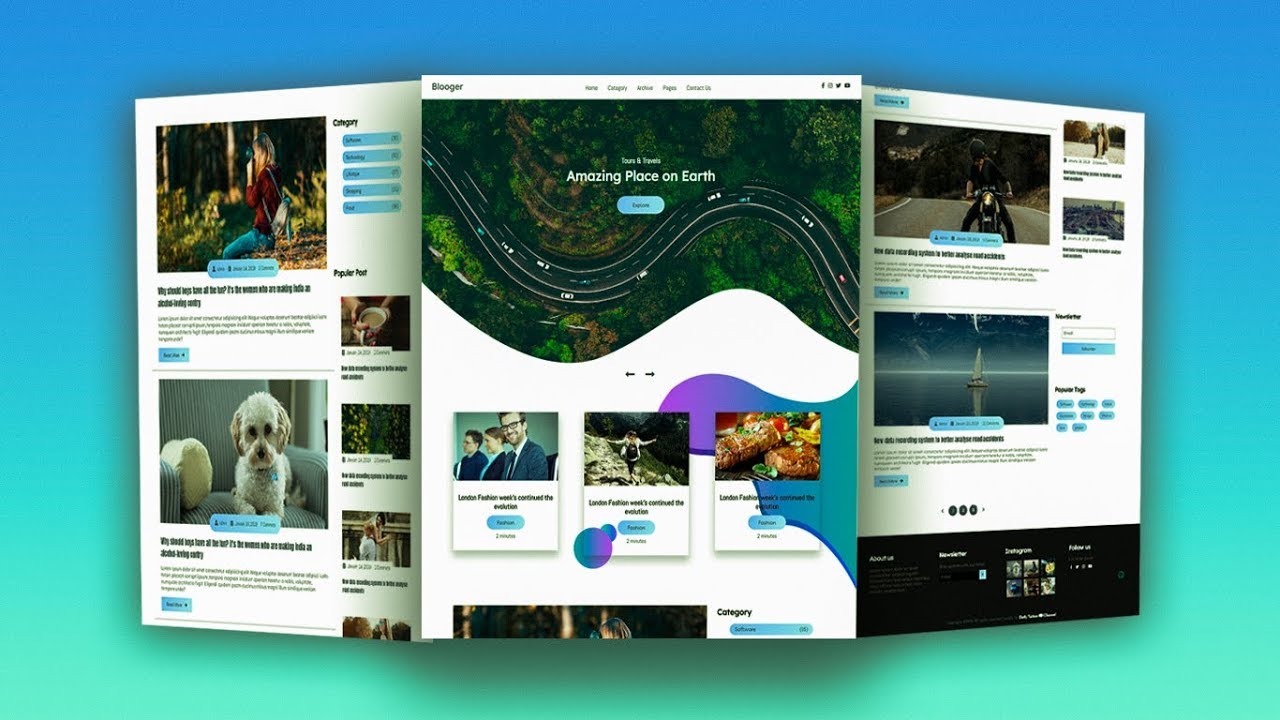
HTML Blog Page
By undertaking the HTML Blog Page project, developers can create an attractive and functional webpage for displaying blog posts, offering a pleasant reading experience for visitors and fostering engagement with the blog's content.

Reminder Clock App
The Reminder Clock App is a digital application designed to help users manage their time, stay organized, and never miss important tasks or events. The app combines clock functionality with reminder features to provide a comprehensive solution for time management.
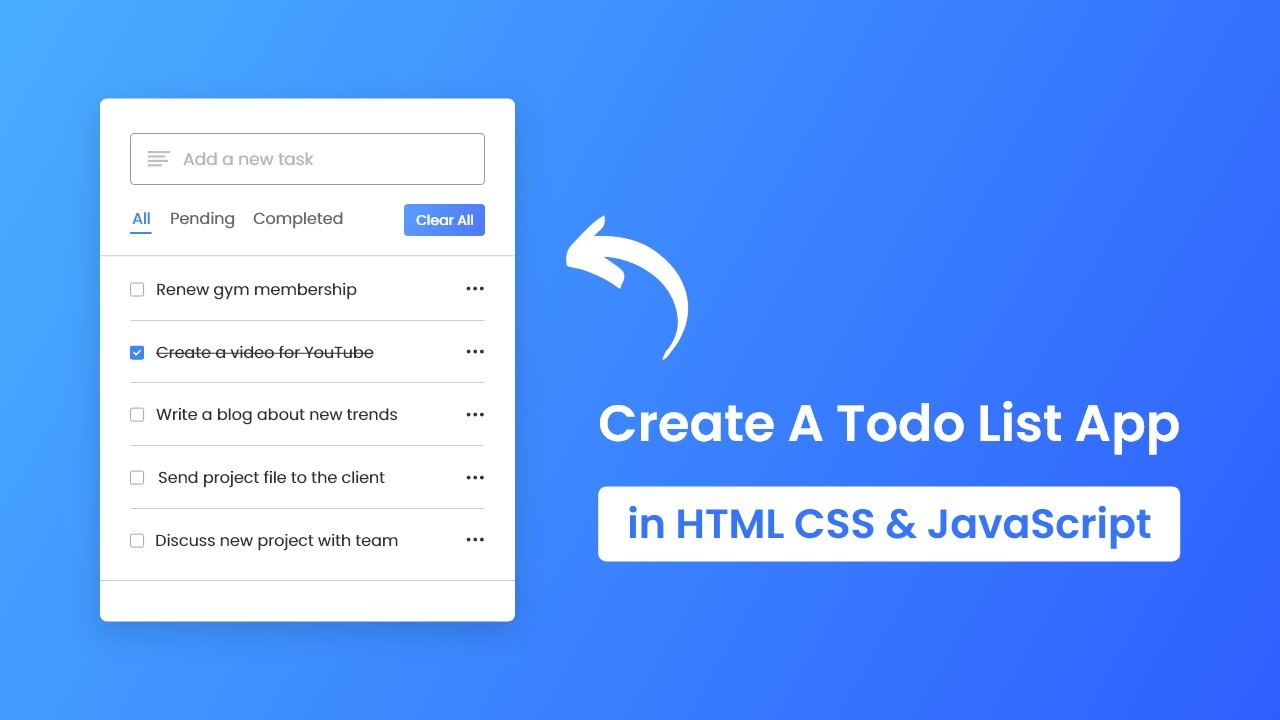
Todo app
The Todo App is a digital application designed to help users manage their tasks, stay organized, and track their progress effectively. The app provides a user-friendly interface for creating, organizing, and completing tasks, making it a valuable tool for personal and professional task management.
Group Discount
If you have Three or more people in your training we will be delighted to offer you a group discount.
BATCH REQUEST
SELF ASSESSMENT
Learn, Grow & Test your skill with Online Assessment Exam to achieve your Certification Goals
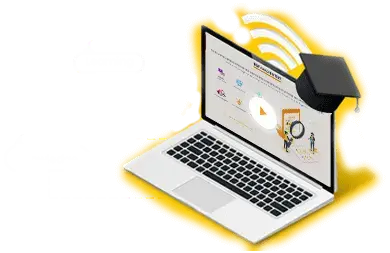
Graphic Designing Training In Patiala FAQ's
Graphic Designing is the process of creating visual content, such as logos, illustrations, and layouts, to communicate messages and ideas. Graphic designers use a combination of typography, color, imagery, and other design elements to create effective and appealing visual communications.
To be a graphic designer, you should have an eye for design, a creative mindset, and the ability to communicate effectively. You should also be proficient in design software such as Adobe Illustrator, Photoshop, and InDesign, and have a strong understanding of design principles such as color theory, composition, and typography.
Graphic design can be a fulfilling and rewarding career choice for those with a passion for creativity and a drive to create visually appealing designs. The field is growing, with an increasing demand for skilled graphic designers across a range of industries, from advertising and marketing to web and app design.
The amount of time it takes to become a graphic designer can vary depending on your background and experience, as well as the type of training you pursue. Some graphic designers have a formal education in design, such as a bachelor's degree, while others may learn through online courses, workshops, or on-the-job experience. In general, it can take several years of study and practice to build the skills and knowledge needed to become a successful graphic designer.
The salary of a graphic designer can vary depending on factors such as location, industry, and experience. According to the Bureau of Labor Statistics, the median annual wage for graphic designers in the United States was $52,110 in May 2020. However, experienced designers in high-demand industries, such as advertising or tech, can earn much more.
The most widely used graphic design software include Adobe Illustrator, Photoshop, and InDesign. These programs offer a range of tools and features for creating vector graphics, raster images, and page layouts, and are used by many graphic designers in a variety of industries.
While a formal education in graphic design can be beneficial, it is possible to become a graphic designer without a degree. Many graphic designers have learned through online courses, workshops, or on-the-job experience, and have built successful careers through their portfolio and skills. However, it is important to note that competition in the field can be strong, and a formal education or certification can help you stand out to potential employers.
Fee Starts From 12000/- Onwards and goes uptoo 35000/- . Duration of the course will be 1 month to 6 months
Are you satisfied with our Graphic Designing Training In Patiala Curriculum? Enroll Now
If yes, Register today and get impeccable Learning Solutions!.

You Can Also Check Our Other Branches
FEATURES OF GRAPHIC DESIGNING COURSE IN PATIALA
Instructor-led Sessions
The classic and effective way to learn, providing better oversight and control over learners, making it easy to study whenever you want.
Real-life Case Studies
Explore real-world situations, these studies allow you to connect your learning with practical solutions used in the industry.
Assignment
Improving analytical abilities and skills is achievable through the perfect academic work, offering a continual scope for enhancement and growth.
24 x 7 Expert Support
Experience limitless learning with an in-depth perspective, supported by round-the-clock assistance to address all your course-related queries.
Lifetime Access
Enjoy lifetime access to the course, granting you the freedom to learn at your own pace without any time constraints or limitations.

Certification
Every certification linked to the program is affiliated with top universities, providing you a competitive edge, and the opportunity to excel in the course.
CERTIFICATION OF GRAPHIC DESIGNING TRAINING IN PATIALA
What you will get from Excellence Technology's Graphic Designing Training In Patiala?
Top Rated Graphic Designing Training in Patiala
Over The Years, We Have Taught Over 35000+ Students & Help Them To Get Their First Job In IT Sector.
We Offers 100% Job Oriented Graphic Designing Course In Patiala For Professional, Entrepreneur, 12th Class Students, College Students, Small Business Owners, Marketing Professional & Job Seekers At Affordable Fees. We Help Ambitious Students Like Yours Build Career By Teaching Them Something That Every Industry Is Looking For.
Share your achievement
Share it on LinkedIn, Twitter, and Facebook to boost your resume. Frame your achievement and spread the word to friends and colleagues.






35,000+ Students
Completed Their Course Certification from Excellence Technology
Graphic Designing Tools
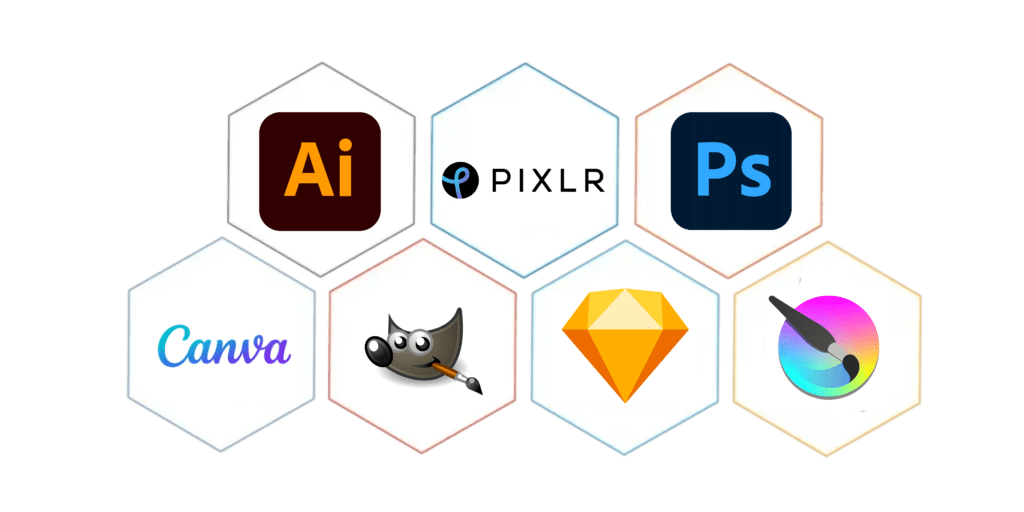
Student Reviews
This Month Placed Students
30,500+ students have been placed in many firms so far. This month, the following Excellence Technology Patiala students have been placed in prominent companies through our placement program.








OUR POSTS

Start a transformative learning journey with our Six Months Industrial Training in Chandigarh. Designed for aspiring professionals and students, our comprehensive program offers a deep dive into real-world applications of theoretical knowledge.Â

Explore the latest SEO techniques, algorithm updates, and best practices to build websites to the top of search engine results. Our hands-on approach equips you with practical skills in keyword research, on-page and off-page optimization, link building, and analytics.

Start a journey of programming excellence with our Python Course. From fundamental concepts to advanced topics, you’ll delve into the world of Python programming, gaining proficiency in syntax, data structures, algorithms, and more.
Â
Related Courses
Php Training In Patiala | Java Training In Patiala | Web Desiginig Course In Patiala | Digital Marketing Training In Patiala | Python Course In Patiala | C & C++ Training In Patiala | Graphic Designing Course In Patiala | Full Stack Web Development | SEO Course In Patiala | Computer Course In Patiala |

Globally Recognized Certification
Over 18,000 Aspirants have Trusted Excellence Technology to Achieve Progress in their Careers.
98%
Of our diploma program, students have found our course immensely useful.
98%
Of our diploma program, students have found our course immensely useful.
98%
Of our diploma program, students have found our course immensely useful.
Apply for a free Demo Classes

Anjali Sharma
For queries, feedback & assistance
Online Support
(9AM - 7 PM)
For Admissions & Career Counselling

